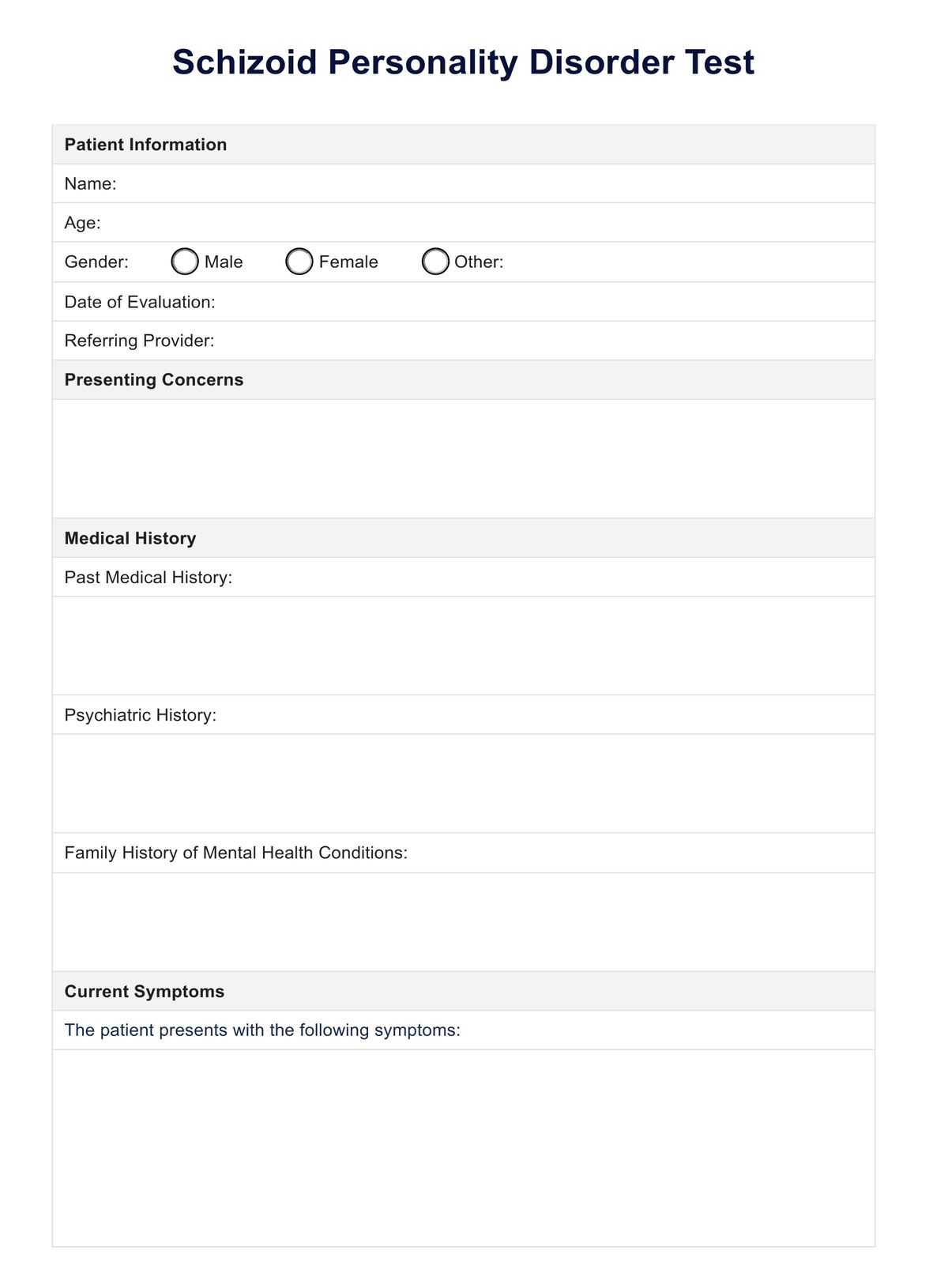Symptoms of Schizoid Personality Disorder include a lack of interest in forming relationships, not enjoying close relationships with close friends often, showing little emotion, lacking the drive to reach goals, and not reacting to praise or criticism.

Schizoid Personality Disorder Test
Discover if your patient exhibits traits of Schizoid Personality Disorder with our comprehensive test. Tailor your treatment plan and achieve positive clinical outcomes.
Schizoid Personality Disorder Test Template
Commonly asked questions
The exact causes of Schizoid Personality Disorder are not fully understood, but genetics and environmental factors likely play a role. Having a family history of schizoid personality disorder, schizotypal personality disorder, or schizophrenia can increase the person at risk.
Diagnosing Schizoid Personality Disorder can be challenging as it involves a long-standing pattern of behaviors. Mental health professionals typically assess a person's history, relationships, and behaviors to diagnose correctly. Questionnaires may also aid in self-assessment tools and the diagnostic process.
EHR and practice management software
Get started for free
*No credit card required
Free
$0/usd
Unlimited clients
Telehealth
1GB of storage
Client portal text
Automated billing and online payments











